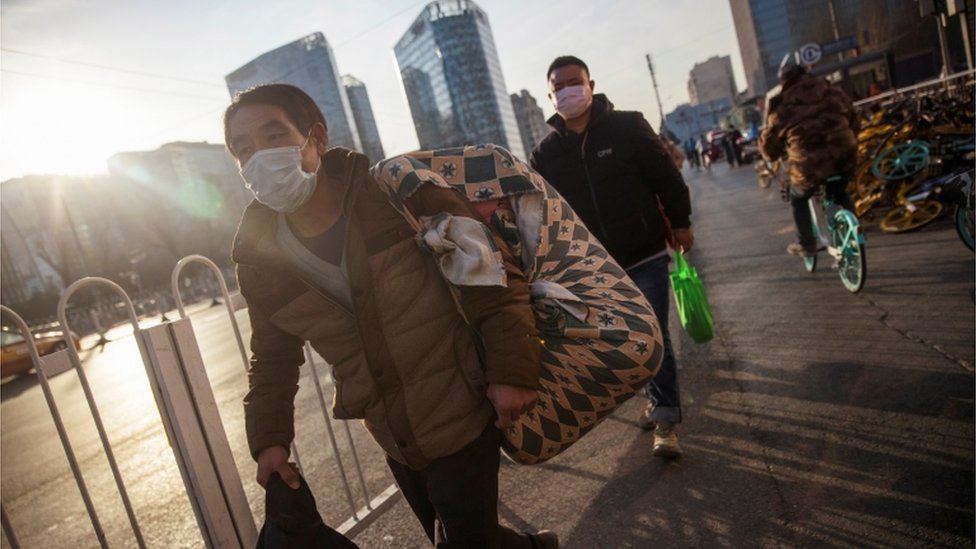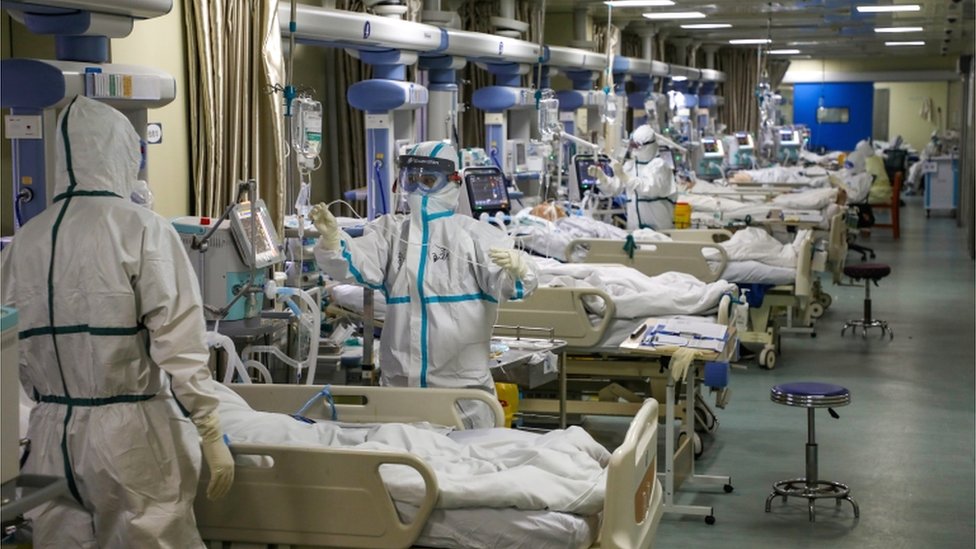
China Covid: Infected woman defends herself after public shaming
A Chinese woman who was publicly shamed after testing positive for Covid-19 has spoken out after the man who leaked her personal details online was punished.
In an impassioned post from hospital, the 20-year-old said she could not understand why she was being attacked.
"I just happened to catch Covid-19, I'm a victim too," she wrote.
The woman found herself at the mercy of trolls after many personal details, from her home address to her phone number, were published online.
It is unclear why the man decided to out the woman, identified by state media only by her surname Zhao.
Police in China's south-western city of Chengdu have since said that the 24-year-old man, identified by his surname Wang, has been given "administrative punishment".
"The privacy of citizens is protected by the law," it wrote on social media platform Weibo on Wednesday.
However, police could do little to stop the tide of online vitriol which had already engulfed Ms Zhao.
'Questionable' lifestyle
Shortly after Ms Zhao was confirmed to be Covid-19 positive on Tuesday, the local health authority publicly released details of her whereabouts in the previous two weeks for contact tracing purposes. It was a routine procedure and she was not identified.
But her case soon became a talking point on Chinese social media, as many noted that she had visited a nail salon, a bar and several nightclubs.
Some social media users said this was evidence that she led a "questionable" lifestyle. Others said she had been "reckless" and accused her of knowingly spreading the virus across the city.
Then, Wang released her name and details online - and the personal attacks came fast and furious.
 IMAGE COPYRIGHTREUTERS
IMAGE COPYRIGHTREUTERS
image captionDespite low infection numbers, China remains very cautious
In response, Ms Zhao came forward on the website Toutiao and pleaded for the attacks to stop in a series of posts. She posted under an alias but used an account verified with her real name, according to local media.
Ms Zhao said she had visited several nightspots as part of her job, which involved "overseeing the atmosphere and sales in bars".
She also said she had co-operated with the authorities in reporting her movements as soon as she tested positive.
"No one wishes for this to happen to them," she said, adding that she had been getting numerous calls and text messages on her phone from strangers.
On Wednesday evening, Ms Zhao wrote online that she was receiving treatment in hospital, and that the staff were concerned that she would get depression over the internet threats.
But she added she had also received encouraging text messages from strangers. "Life is worth it," she said.
On Thursday, she said in a video - which did not show her face - that she was being looked after at the hospital, and thanked the public for their concern.
Her grandparents, who are in their 60s and 70s, became Chengdu's first local cases in months on Monday after they saw a doctor at a hospital for their coughs.
It is not known how they were infected, but local health officials said the virus was detected on food stored in the elderly couple's fridge and on a chopping board in their apartment.
Chinese state media has been blaming recent clusters on imports of frozen food, but the World Health Organization says there is no evidence that people can catch the virus from food or food packaging.
Domestic transmissions have largely been brought under control in China. The country has an overall low case rate but its tally of confirmed cases does not include asymptomatic patients.
 IMAGE COPYRIGHTREUTERS
IMAGE COPYRIGHTREUTERS
image captionAlthough it was the world's first hotspot, China now has the virus under control
China, where the first cases of coronavirus were reported about a year ago, is not the only country where people have been shamed for getting ill with Covid-19.
In South Korea, where authorities release details such as a patient's age, gender and travel history in the fight against the pandemic, citizens have conducted online witch hunts to identify patients.
In Singapore, a tech company executive was shamed after being wrongly identified as a woman who made headlines for refusing to wear a mask.
Meanwhile, in Vietnam, the daughter of a wealthy family was abused online for jet-setting through Europe before returning to Hanoi.

